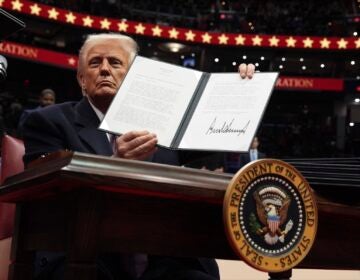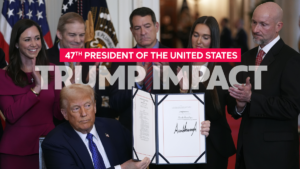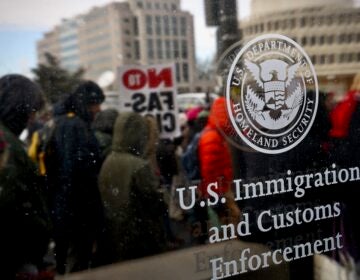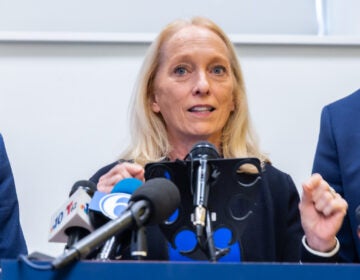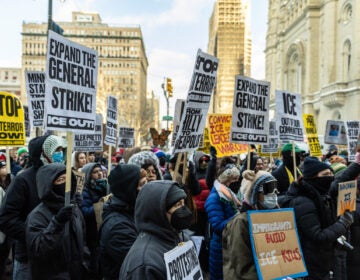New Jersey leads effort to challenge Trump’s executive order to end birthright citizenship
N.J. Attorney General Matt Platkin said Tuesday that he’s leading a group of 22 states, D.C. and the city of San Francisco in filing a lawsuit blocking Trump’s order.
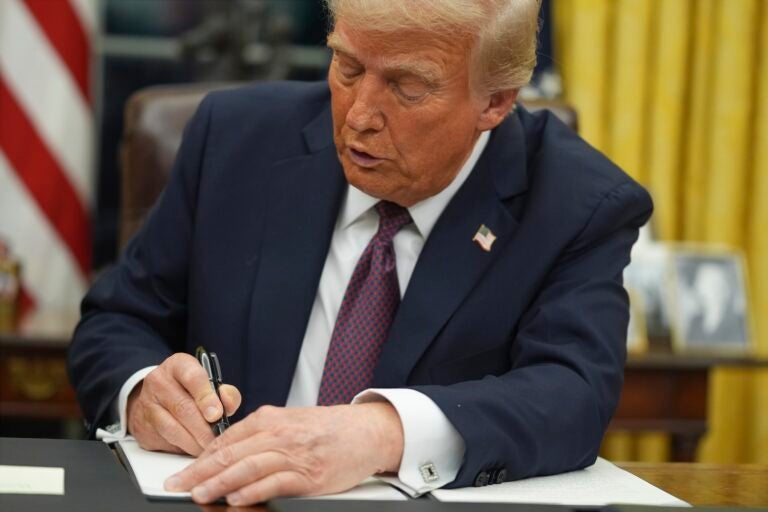
President Donald Trump signs an executive order on birthright citizenship in the Oval Office of the White House, Monday, Jan. 20, 2025, in Washington. (AP Photo/Evan Vucci)
What is the history of the issue?
The 14th Amendment did not always guarantee birthright citizenship to all U.S.-born people. Congress did not authorize citizenship for all Native Americans born in the United States until 1924.
In 1898 an important birthright citizenship case unfolded in the U.S. Supreme Court. The court held that Wong Kim Ark, who was born in San Francisco to Chinese immigrants, was a U.S. citizen because he was born in the country. After a trip abroad, he had faced denied reentry by the federal government on the grounds that he wasn’t a citizen under the Chinese Exclusion Act.
But some advocates of immigration restrictions have argued that while the case clearly applied to children born to parents who are both legal immigrants, it’s less clear whether it applies to children born to parents without legal status.
The issue of birthright citizenship arose in Arizona — one of the states suing to block Trump’s order — during 2011 when Republican lawmakers considered a bill that would have challenged automatic birthright citizenship. Supporters said then that the goal wasn’t to get every state in the nation to enact such a law, but rather to bring the dispute to the courts. The bill never made it out of the Legislature.
What has the reaction to Trump’s order been?
In addition to the states, the District of Columbia and San Francisco, immigrant rights groups are also suing to stop Trump’s order.
Chapters of the American Civil Liberties Union in New Hampshire, Maine and Massachusetts along with other immigrant rights advocates filed a suit in New Hampshire federal court.
The suit asks the court to find the order to be unconstitutional. It highlights the case of a woman identified as “Carmen,” who is pregnant but is not a citizen. The lawsuit says she has lived in the United States for more than 15 years and has a pending visa application that could lead to permanent status. She has no other immigration status, and the father of her expected child has no immigration status either, the suit says.
“Stripping children of the ‘priceless treasure’ of citizenship is a grave injury,” the suit says. “It denies them the full membership in U.S. society to which they are entitled.”
In addition to New Jersey and the two cities, California, Massachusetts, Colorado, Connecticut, Delaware, Hawaii, Maine, Maryland, Michigan, Minnesota, Nevada, New Mexico, New York, North Carolina, Rhode Island, Vermont, and Wisconsin joined the lawsuit to stop the order.
Arizona, Illinois, Oregon and Washington filed a separate suit in federal court challenging Trump’s order as well.
___
Associated Press reporter Jacques Billeaud in Phoenix, David Collins in Hartford, Connecticut, Zeke Miller, Rebecca Santana and Mark Sherman in Washington, contributed to this report.

Get daily updates from WHYY News!
WHYY is your source for fact-based, in-depth journalism and information. As a nonprofit organization, we rely on financial support from readers like you. Please give today.


